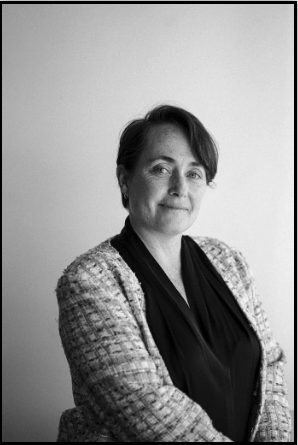Bipolar I is one of the most common diagnoses of Bipolar disorder. It is such a light diagnosis that oftentimes, medication is not needed and can be maintained with intensive work on oneself. Millions of Americans struggle with one form or another of Bipolar. The goal is to treat it immediately after being diagnosed so it does not spiral into self-medicating or acts of self-harm.
Bipolar I disorder is a mental health condition defined by experiencing episodes of extreme euphoria and energy, followed by bouts of severe depression. Bipolar disorder goes beyond being “moody.” Someone suffering from bipolar disorder live their lives bouncing between depressive and manic episodes.
A manic episode is a clinical name for the “upper” effects caused by bipolar disorder. Manic episodes will cause someone to experience extreme bursts of energy and potentially irrational behavior. With bipolar I disorder, a manic episode can last anywhere from a couple of days to multiple months. Most manic episodes last for a few weeks, however.
Depressive episodes are the name given for the “downer” effect caused by bipolar disorder. The symptoms associated with depressive episodes are similar to what a person experiences with normal depression or major depressive disorder.
A depressive episode can cause someone to feel extreme sadness, low energy, restlessness, and irritability. Depressive episodes generally last longer than manic episodes. On average, a depressive episode will last for several weeks or months.
The symptoms of bipolar I disorder are dependent on which type of episode a person is currently experiencing. The disorder is defined by the drastic changing of symptoms as a person switches from manic to depressive episodes.
Manic episodes can cause extreme energy and a feeling of euphoria. During a manic episode, a person is likely to experience high levels of self-esteem and social activity. The increase in energy levels will often cause people experiencing a manic episode to go long periods without sleep. Someone experiencing a manic episode will noticeably talk louder and more quickly than usual. However, they may not be aware of this change.
A manic episode can cause irrational behavior and reckless actions. Someone in a manic episode will have difficulty thinking things through. Their energy often causes them to act quickly and without consideration. A person experiencing a manic episode may squander their money, increase or begin abuse of illicit substances, and be more likely to participate in sexual actions.
In severe manic episodes, a person may become delusional or lose a sense of reality. This can be incredibly dangerous, as they could have unprotected sex in situations or with people they usually would not. They may also engage in behavior that puts themselves or others at risk.
During depressive episodes, on the other hand, a person’s mood is comparable to a complete and polar opposite of manic. They will likely experience an increase in time spent sleeping or feel fatigued consistently. Self-esteem will fall sharply, leading to long periods of sadness and potentially suicidal thoughts or actions.
To properly diagnose bipolar I disorder, a person must have experienced a full manic episode. While someone with bipolar I disorder may also often have experienced a full depressive episode, it is not necessarily always the case. This is determined by a clinical interview in which symptoms are compared to a list of criteria. The criteria are set in the fifth edition of the Diagnostic and Statistical Manual of Mental Disorders, or DSM-5.
Before the interview, a doctor may ask other questions or perform a physical examination to ensure these symptoms or changes in behavior or not being caused by any other condition.
To diagnose a depressive episode, a person must have five or more of the following symptoms within two weeks:
While drastic mood swings characterize both types of bipolar disorder, there are key differences between bipolar I and bipolar II. While depressive episodes commonly occur in bipolar I disorder, they always occur in bipolar II disorder. Bipolar II disorder is defined by having experienced a major depressive episode lasting at least two weeks and at least one hypomanic episode.
A hypomanic episode is often considered to be a less severe version of a manic episode. Someone experiencing a hypomanic episode may feel an increase in energy and a decrease in sleep needed. However, hypomania will not usually cause a person to act recklessly enough to become a danger to themselves or others.
Because the symptoms of depressive episodes are usually much more severe than hypomania, bipolar II disorder is often misdiagnosed as depression or major depressive disorder. While bipolar II is sometimes spoken about as a less severe version of bipolar I, that is not the case. In actuality, these disorders are two completely distinct diagnoses.
Bipolar I disorder can be treated in various ways, depending on what the person responds best to. Usually, bipolar I disorder is treated through a combination of psychotherapy and medications.
A variety of medications may be prescribed to treat symptoms associated with bipolar I disorder. To find the best medication for you, it is essential to be open and honest when speaking to your healthcare professional. Mood stabilizers, antidepressants, and lose-dose antipsychotic medication may also help treat bipolar I.
Bipolar I disorder can not only be a disruptive condition, it can be dangerous if left untreated. If you or a loved one are suffering from bipolar I disorder, it is important to seek the help of medical professionals as soon as possible.
At AM Health Care, we are to help you deal with your mental health in any way possible. We believe in designing a treatment plan that precisely suits your condition and your needs. Mental health disorders can be disruptive and potentially dangerous when left untreated, so there is no reason to wait any longer. Please call us today at 818-383-1297 to learn more about how we can help you and potential treatment options.
Our facilities that offer Bipolar I Treatment:

